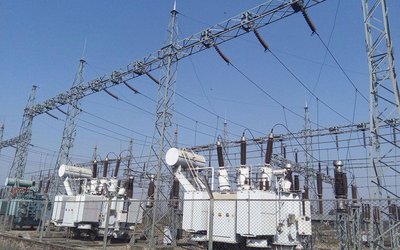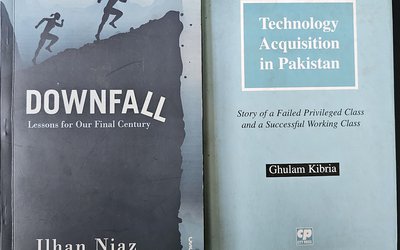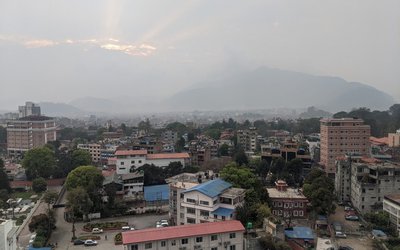Despite several extensions granted to present a complete and relatively dispute less report, Constitutional- Political Dialogue and Consensus Committee (CPDCC) failed to do so, which triggered battle of words between leaders belonging to two groups, ruling and the opposition. The CPDCC’s inconclusive report was discussed in CA for several days: members belonging to the ruling parties suggesting that the new statue should be promulgated on the stipulated day of January 22 even if it calls for voting, while the opposition members warned of dire consequences should voting be taken resort to pass the constitution. Despite failures of CPDCC and the cross-party task force, formed to present a consensus proposal, Prime Minister Koirala in keeping with his position has been assuring that the new law of the nation will be made public on the promised day, while many other leaders and a few minister, some belonging to his own party, have since long been ruling out this possibility. A minister representing UML Party went to the extent of suggesting that Koirala should quit as PM on January 22 irrespective of what happens to the constitution. A simple, gentle and kind Koirala should not forget that people want his ministers, no matter which party they belong to, to abide by certain established norms and practices of governance so that common people do not lose faith in the coalition government that intermittently looks indecisive. Really confusing is the situation.
May be tired of the confusing utterances of our leaders, CA Chairman Nembang demanded that the major parties grant him authority to bring a preliminary draft if consensus remains elusive both on contents and process to be adopted for the new constitution. Despite criticism from opposition leaders, people at large welcomed the assertiveness of Nembang who was accused of remaining a spectator in the last CA, which died a very unceremonious death. Probably being aware of the criticism that his inactiveness in the last CA invited, Nembang almost turned a deaf ear to allegations from different quarters including those of Constitution Drafting Committee chairman Krishna Sitaula. Top leaders appeared paying serious attention to his warning as was evident from cross-party meetings held several times in a day mostly at the official residence of PM Koirala. Expectedly, these meetings failed to arrive at consensus on contentious issues and CA had no choice but to decide to send the report back to Baburam-led CPDCC, giving it five days to settle the issues. Although majority of leaders opposed the idea of sending it back, only RPP Nepal members were heard voicing dissent when Nembang tabled it for endorsement. Boldness shown by CA chair and logical observations of members like Gagan Thapa were rendered useless.Bhattari was asked by CPDCC to hold dialogue with top leaders on either side of the political divide and was expected to proceed carefully without seeming to have taken sides with any of the two warring sides. In the mean while, row took place between UML chairman K P Oli and Madhesi leaders at a meeting when Oli’s satirical remarks provoked the latter who abruptly walked out of the cross-party meeting, ostensibly dismayed by his remarks that if the Madhes-centric leaders wanted all of the plain lands to be included in Madhes, they might as well include UP and Bihar states of India. Oli has invited lots of criticism from leaders and party workers who are dead against north-south division of Nepal to form provinces and do not want even an inch of plain land to be included elsewhere. At the same time, his boldness and straightness on contentious issues has also won appreciation and support of many Nepalese who see our three regions (mountain, hills and plain area) as an integral and inseparable part of Nepal whose sovereignty and territorial integrity as a nation is not only loved but worshipped at a time when one C K Raut has been freely moving around the country, propagating creation of an independent Madhes. Oli, therefore, may not be extending an apology as demanded by his critics. Moreover, there is no dearth of people who believe that if his observations were unbecoming of a top leader of the country deliberating on very sensitive issues, Oli was not wrong in finding abrupt walking out by Madhesi leaders very insulting. The solution, therefore, is to meet over tea and shake hands. Probably, PM Koirala’s expertise and experience could be made use of on this front so that this new standoff does not further complicate the situation when Dr. Baburam has failed again in doing some meaningful work, which has added one more feather of failure on his already overcrowded hat. The smile on the face of Prachanda and Baburam that sending back of the report by CA to CPDCC had brought must have disappeared with the inconclusive report going back to CA and it being presented there by the senior most member of the CPDCC Mr. Soorya Bahadur Thapa in absence of Dr. Bhattari whose party (30-party alliance) boycotted the CA meet of January 13.
Attention-lacking economy of Nepal is in a bad shape. This agricultural nation is witnessing increasing import of farm products: in the four months of the current fiscal rice import increased by 135 percent to reach Rs.4.70 billion, compared to the corresponding period of last fiscal. We lack exportable with proper level of value addition, which is manifested by disappointing export/import ratio that is on a steady decline in recent years. Proper attention has to be paid to the economy to arrest its further deterioration in the best interest of Nepal and relief-seeking Nepalese.
Talking of relief, poor Nepalese hardly benefit from low inflation or sharp drop in commodity price because price transmission process( global to national and thence to consumer) is slow, especially in case of price cut, and even when prices are lowered by the concerned agencies, poor supply management deprives consumers of benefit. For example, consumers here have not benefitted to the extent they should from the sharp fall in crude oil prices in recent months, from 135 to less than 50 dollars a barrel. While oil exporting countries like Russia have taken a hit as is shown by 40 percent depreciation in the value of their currency (Ruble), oil importing countries are working out ways to take benefit of the fall in oil prices said to be the result of weak demand for it in Asia and Europe, strong dollar and strengthened supply of the commodity in the US.As a result of fall in oil revenue, Saudi Arabia, largest oil producer in the OPEC group, has made public its budget for 2015 with a huge deficit, Venezuela is experiencing hyper inflation and Nigeria’s economy is in pitiable condition. Inflation has moderated in Nepal in line with other countries such as India (0 growth in whole sale price), China (1.5 percent), UK (0.5 percent), Germany (0.20 percent) etc, but low-income consumers here have yet to benefit from it and are not likely because they will have to face increased price of rice, major staple, as its production is likely to go down by 5.1 percent this year. Supply-disrupting bandhs organized, so far separately, by Baidya-led Maoist and the alliance led by Prachanda have already shown some negative results. One should not be surprised if the Maoist- trio (Prachanda, Baidya and Biplab) currently heading three separate parties join hands to launch violent agitation to deliver a crumbling blow to the ailing economy, much to the dislike of sovereign voters. Hope PM koirala’s give-and-take and win-win formula works wonder to bring the quarreling leaders together on January 22 to officially announce that the only thing left to be done in constitution preparation is to put in black and white the consensus reached on contentious issues. This will relieve commoners of the anxiety and may encourage our leaders to think about the economy seriously.

Dr. Tilak Rawal
Dr. Rawal is former governor of NRB.
- Prachanda Outsmarts Again
- Apr 14, 2024
- Prachanda Completes One Year
- Jan 26, 2024
- Terrible Times To Continue
- Oct 12, 2023
- Budgets Of Nepal
- Jun 09, 2023
- Moves And Counter Moves
- Feb 27, 2023
















